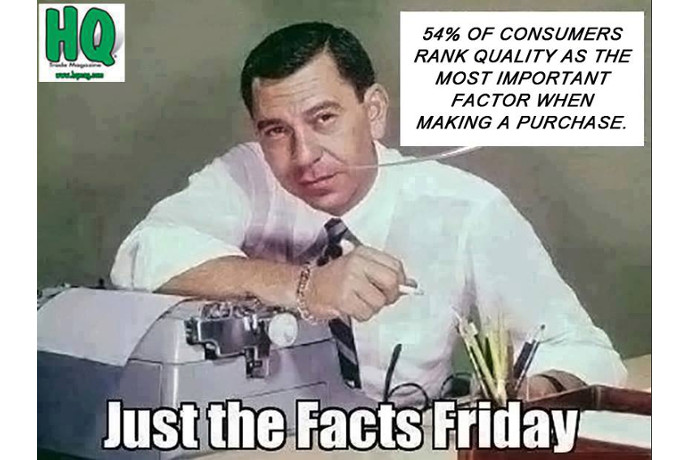
Can the profit margin on “cheap” products be higher than when you sell something of quality at a higher price point? Sure — at least when you first do the math. But when you look at the entire equation, quality always equals more sales and better customer relations.
According to a recent customer expectations report by First Insight, 54 percent of consumers rate quality as the most important factor when making purchases.
More than half of Baby Boomers, Millennials and Generation Xers choose quality over price. Similarly, while 62 percent of affluent respondents (who make more than $100,000 per year) ranked quality as the most important, compared to 49 percent of those that made less, it was still significantly more important than price with both groups.
Another retailer survey showed that 47 percent products were returned for not matching customer expectations. If you’re selling poor quality products or knock-off at a higher price point, you might manage to ‘fool’ your customers into buying, but it won’t take long before quality (or lack thereof) catch up with you. First, your return rate is going to increase, and before long, people begin to connect your business with poor quality products, nobody will be willing to buy from you.
One dimension of quality is how a product looks, feels, tastes or smells. In a market crowded with similar products, features, and even colors, make all the difference. Customers notice these kind of details, and they can make or break a sale. There are so many options out there these days that unique attributes and designs have a big impact on purchasing decisions.
Ultimately, quality is what a product can do for a customer, how well the product does what it’s supposed to do, and how well it holds up over time. Good products result in good reviews. Friends and family want to know if someone they trust had a good experience with a product or business. The higher quality product you have to offer, the better chance you’ll have at generating positive reviews and recommendations, and repeat customers.












